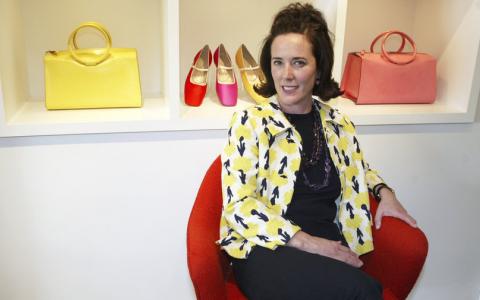
Cashing out early amounted to an early retirement. Then the company with her name on it grew into a $2.4 billion empire without her.
Kate Spade’s suicide saddened a generation of entrepreneurs and crushed her family. She’d apparently been depressed for years.
But with a tween daughter and a new business depending on her, the last collapse of her mood shocked people who followed her life and career.
Even if she was really sick, they say, she had too much to live for. She loved her daughter and wanted every minute of time with her she could grab.
She loved working. And according to the family statement, she had plenty of money — the new business was going well.
So we have to look at the timing. Liz Claiborne just sold the company that still bears Kate Spade’s name to Coach to build a handbag empire. The final deal value is over $2.4 billion.
When she sold off her company and her name in 2007, they were “only” worth around $135 million. That’s a healthy payout but realizing that you left a decade early and left $2.3 billion on the table would be a drag on anyone.
After all, the questions multiply fast: could she have held on for another few years and been part of the company’s growth from cult brand to fashion institution? Was Kate Spade actually the factor that held Kate Spade back from mass success?
And was her slice of that $135 million payout ever going to be enough?
These are serious questions. For someone who’s already thinking about ending their life, they need helpful answers.
Plenty of money
At an estimate, Kate Spade and her husband took about $30 million out of the company after taxes. Invested in index funds, that money might have generated another $34 million since then.
That’s plenty of money to support any realistic lifestyle. But when you compare the numbers to what other people have — and what the company is now worth — the exit can still feel more than a little hollow.
Some people have a natural competitive instinct. Clients compare their quarterly statements to what friends say they’re making in the market all the time. Even if they’re doing extremely well, they’ll resent someone else’s extra basis point.
And nobody likes to be shut out of a real wealth generation cycle. The kids call it the fear of missing out. Kate Spade was sidelined when her company grew into a billion-dollar behemoth.
Granted, she chose to sideline herself in order to raise her daughter. But people are complicated and often conflicted.
At least she died with what could be $60 million in the bank and a daughter to leave it to. She also had an intact marriage so there was never a chance for divorce lawyers to take a big cut of the family’s self-made fortune.
Her husband Andy will naturally take over full custody of the accounts. Suicide doesn’t change that. When he dies, daughter Frances will almost certainly inherit what’s left.
The nature of her death might have an impact on her fledgling comeback business, Frances Valentine.
She was that company. There should’ve been big life insurance policies on all “key persons” as part of a logical succession plan. Those carriers will balk at paying for a suicide.
And in the meantime, Frances Valentine is left without either its creative force or the business minds that did so well with the original company once Kate and Andy Spade were off the org chart.
Andy is good, but his ability to build a truly sprawling empire is untested. He’s also a little distracted right now.
Odds are good he’ll eventually sell. In the meantime, the business probably spins in a kind of limbo, a memorial. Without Kate, it’s likely to turn into a kind of rich family’s toy company, more about legacy than market share.
That’s all right. It was still scaled like a toy when she died. The last estimate of its revenue I saw was in the $1 million range and in fashion accessories, margins weren’t going to be huge.
While inventory sold out as her mourning fans reached for keepsakes, it’s now unclear how the enterprise could’ve grown if she’d given it more time.
Early retirement didn’t satisfy
In the meantime, the relative scale between her old company’s $2.4 billion valuation and her new venture must’ve chewed on her at least a little.
Of course she could’ve simply taken the original payout and left business forever. Even in New York, they had enough money to live simply, quietly and relatively lavishly.
She wanted more. The irony is that ambition was probably a factor in her decision to end her life early.
Retirement can kill even the most ambitious, driven, disciplined people. It opens them up to existential questions that weren't an issue when they were working all the time.
Some of your clients may be in a similar situation. Do they miss working? Do they have enough to live for?
Maybe the time for them to get back to work -- on a passion project, in the community, whatever it takes -- is before anyone recognizes that there's a problem.



